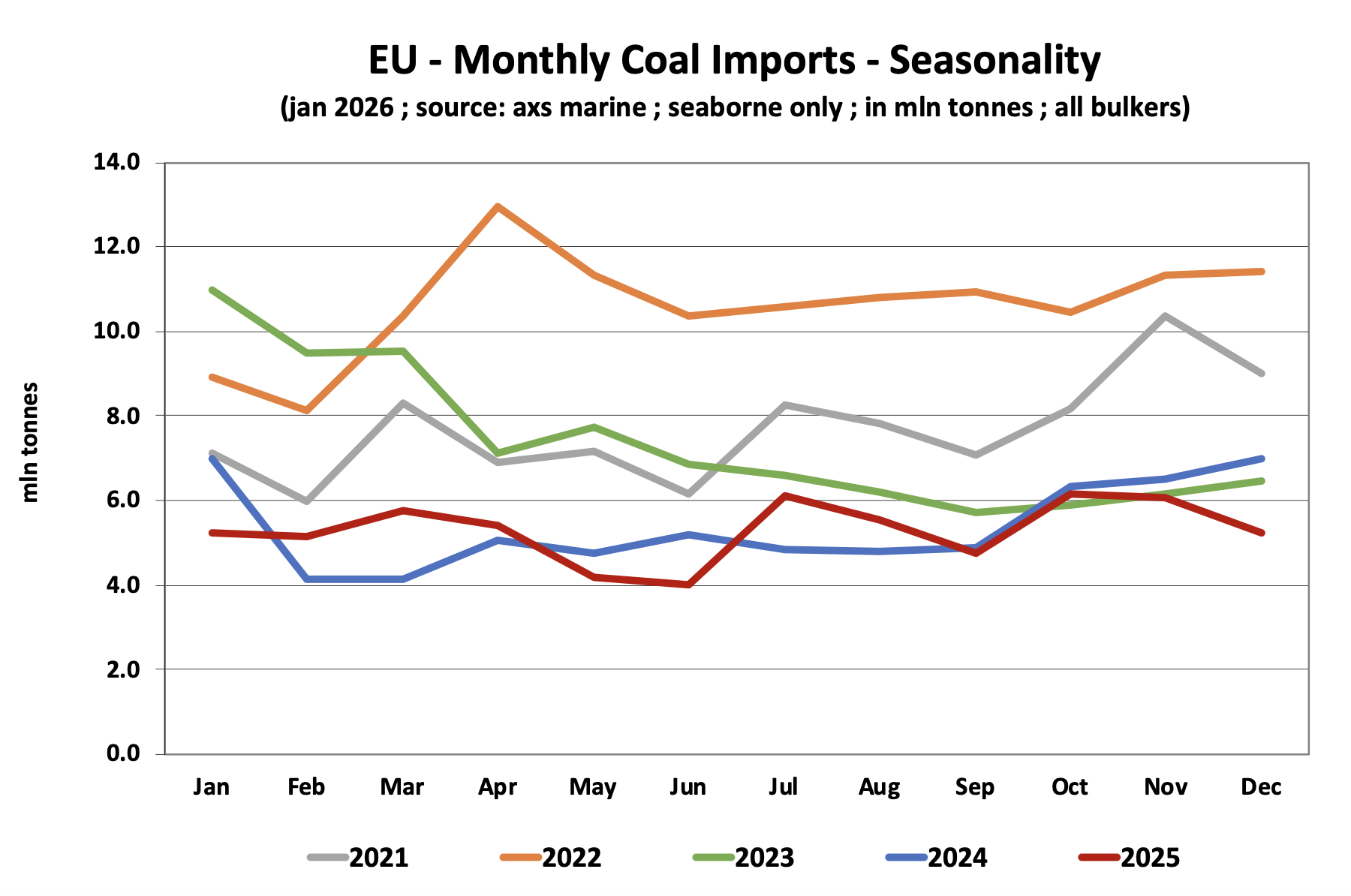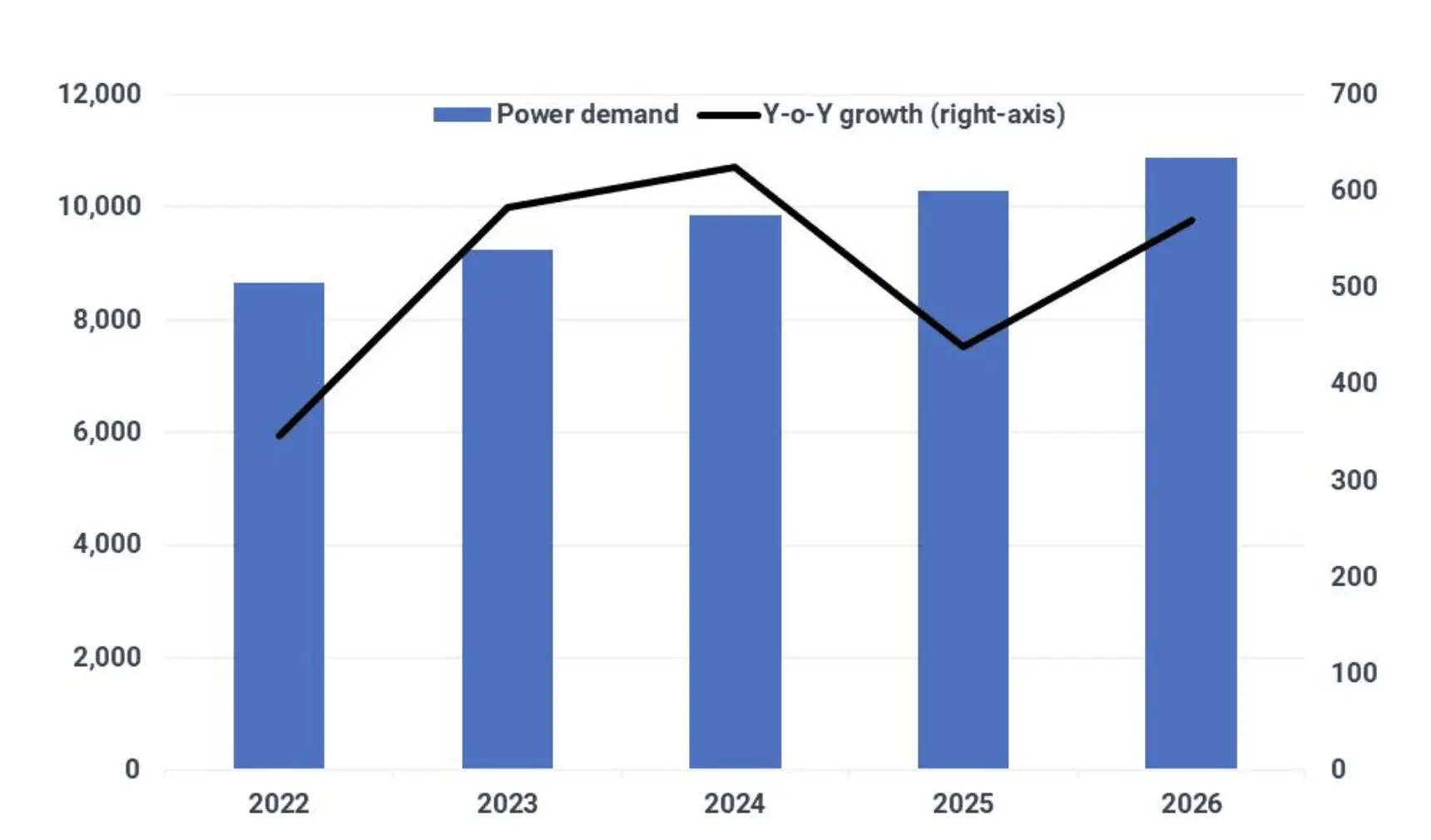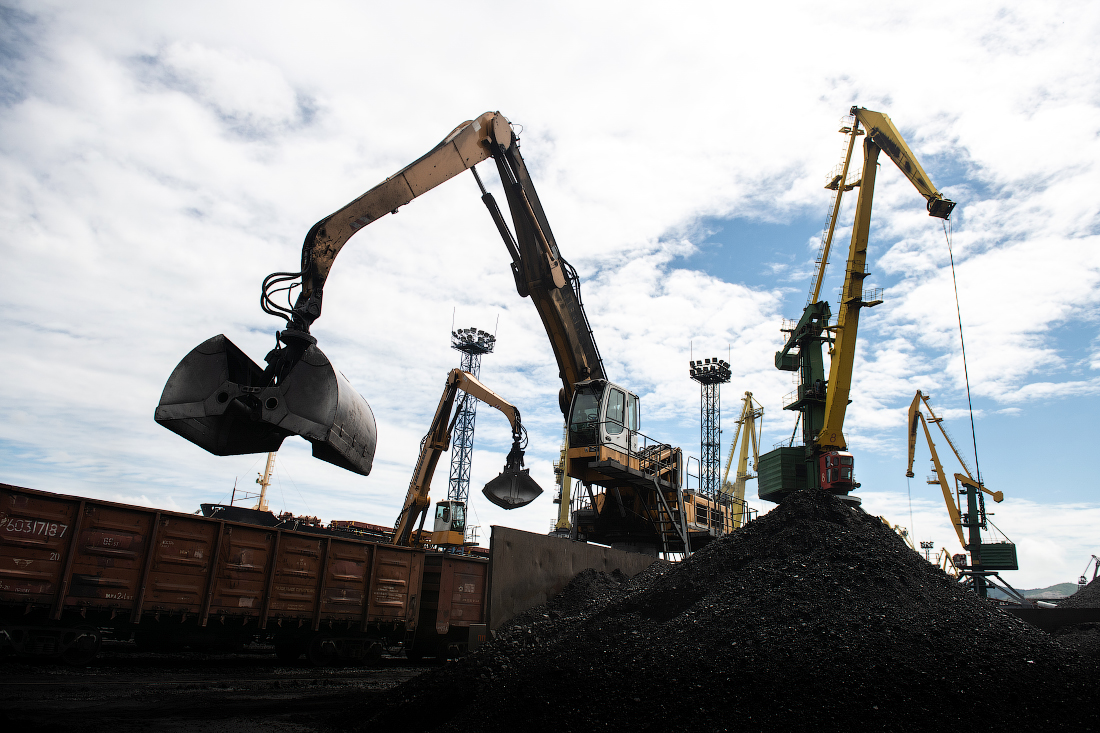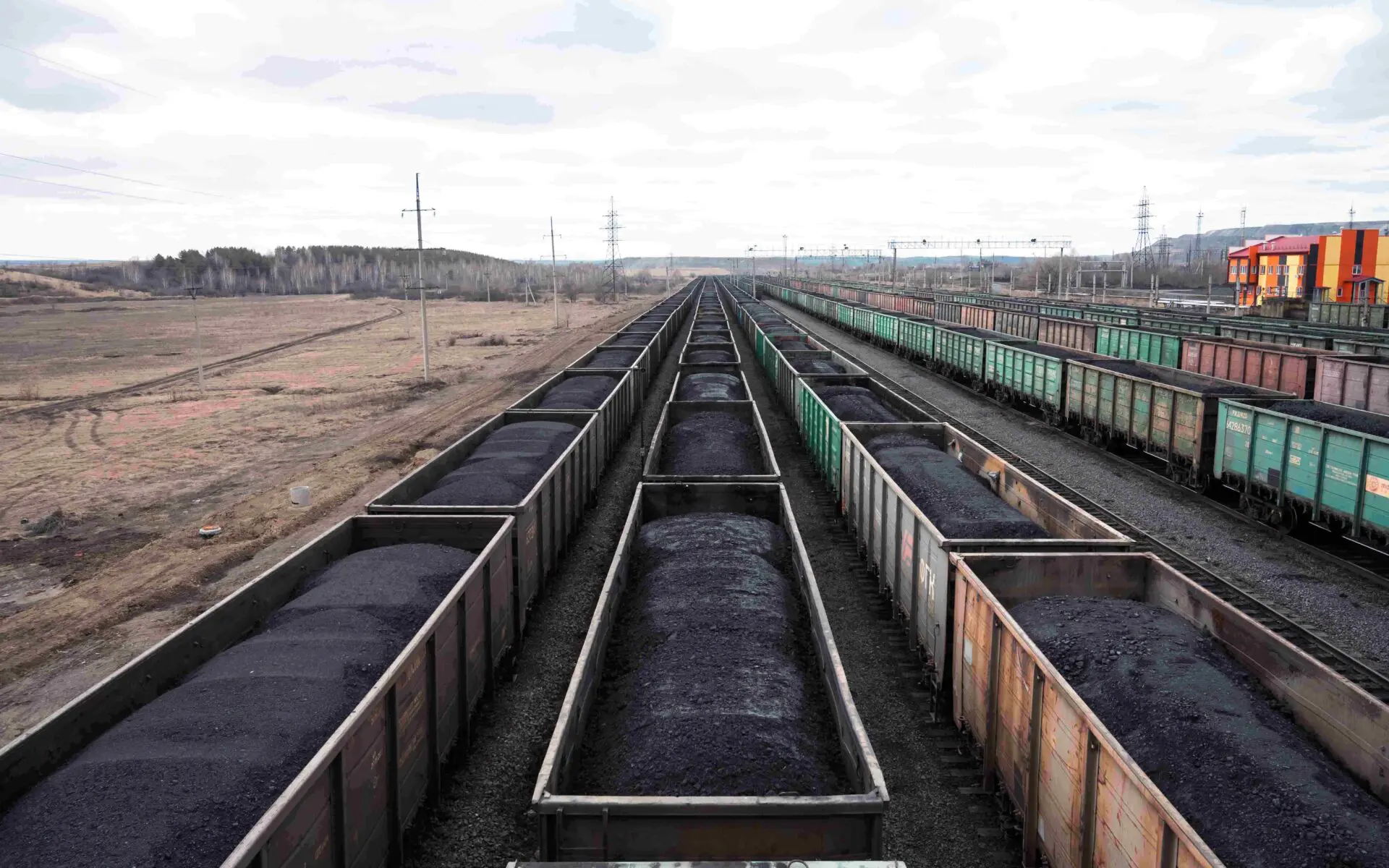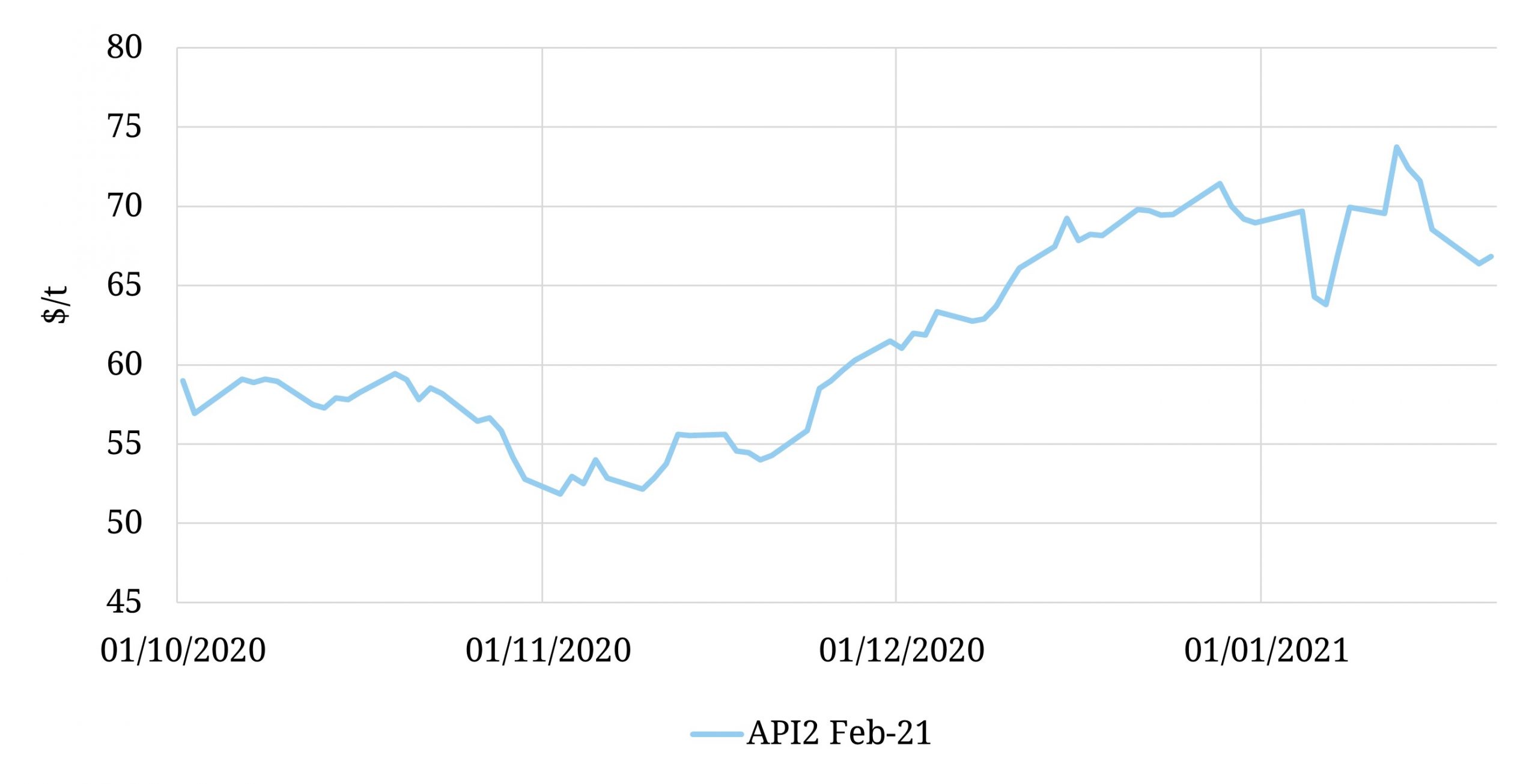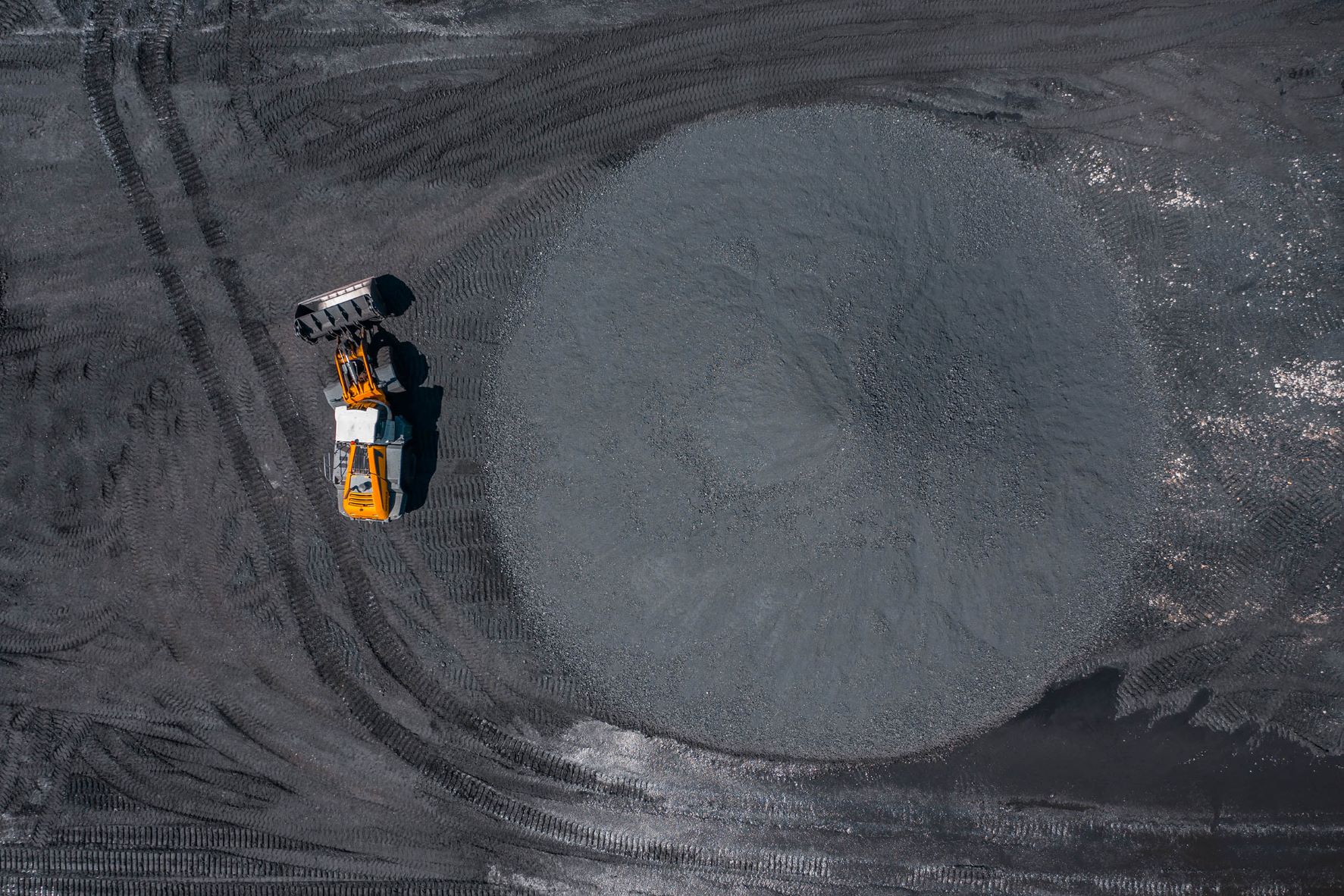

(CAA Analytics) A recent uptick in European coal indices slightly over 50 USD/t stemmed from rising gas prices, downturn of EU carbon quotas and a reduction of Colombian material supplies to the export market.
TTF gas prices surged to 4.75 EUR/MWh (+0.557 EUR/MWh to July 15, 2020). The EU carbon prices dipped to 26.55 EUR/t (-2.26 EUR/t to July 15, 2020). The largest mining company in Colombia Drummond plans to reduce coal production in 2020 by 11% due to negative market fundamentals caused by the pandemic.
Apart from that, stronger Euro against the US dollar (+0.43 USD to July 15, 2020) amid strengthening Brent oil indices since the beginning of July 2020 to 43.75 USD/barrel (+2.62 USD/barrel to July 01, 2020) spurred long-term delivery deals on the market, shoring up coal prices.
Despite the reduction of ARA coal reserves to 6.73 mio t (-0.45 mio t to July 01, 2020) due to shipments to Turkey and Morocco, excessive volumes of coal and insufficient energy consumption in the EU limit further growth of indices.
During EU summit in Brussels (July 16-21 2020) EU governments reached Green Deal agreement worth 1.8 trln EUR (2 trln USD). Almost a third of that will be spent on clean energy projects.
Waning demand of Indian buyers amid the ongoing monsoon season weakens South African coal indices. Due to low export prices, a number of South African producers forward export material to local consumers, resulting in oversupply in the market. Therefore, coal prices in the domestic market of South Africa are also declining, which forces local mining companies to suspend operations of mines until the market situation stabilizes.
The lack of clarity on the allocation of additional Australian coal import quotas, heavy rains in southern China and the surge in the hydropower on the Chinese market reduce the NEWC globalCOAL index.
Limited supplies of Indonesian coal as well as heavy rains in the province of South Kalimantan (Indonesia) amid growing interest of consumers from Bangladesh strengthened the index of Indonesian material this week. Bangladesh imports 3 mio t of coal per year. It is expected to ramp up its imports to 8-15 mio t over the next 10 years.
The growth of economic activity in southern China and the Chinese buyers willing to purchase metallurgical coal from Australia via ports that did not exhaust import quotas supported the indices of coking material of Australian origin.
International steel producers are increasing output despite a drop in demand caused by the Covid-19 crisis.
Source: CAA Analytics
Follow CAA on Twitter:
[tfws username=”CAA_Analytics” height=”700″ width=”350″ theme=”light” color=”#FAB81E” tweets=”2″ header=”yes” footer=”yes” borders=”yes” scrollbar=”yes” background=”yes”]


